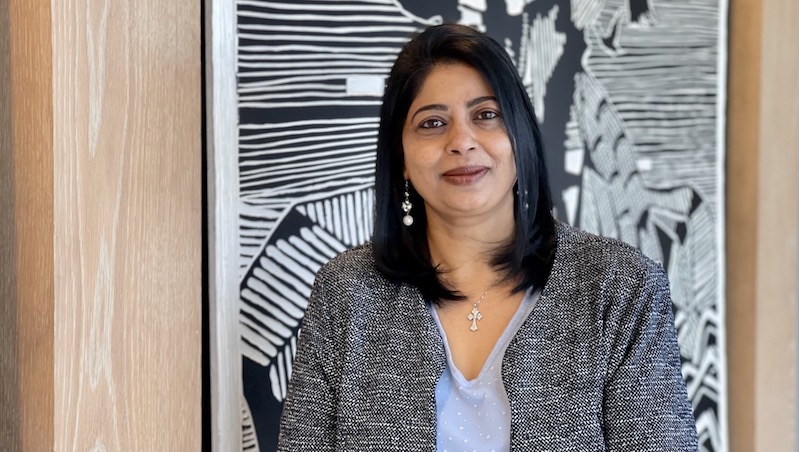While entrepreneurs need to keep a constant eye on their cashflow and the factors that influence its ebb and flow, it’s equally important to invest in long-term financial health to build buffers, save for Capex projects, or even just to rest easy in the peace of mind that comes with having funds set aside.
The past year has been a stressful one, with individuals and businesses alike having had to navigate rising inflation and interest rates along with the unexpected costs of staying in business through various stages of load shedding. While responding to short-term pressures, many may have lost sight of the long game made possible by saving money in a long-term account.
“Building financial health for your business takes time, careful planning, and a clear strategy as you balance your business’s daily needs with its long-term financial goals,” explains Natisha Lazarus, Head of Business Banking at Sasfin.
“There are several products available to entrepreneurs, offering parameters to suit each situation. However, the overriding rule is to be sure that you understand the terms and conditions of the savings or investment product you choose so that there are no complications when your business needs access to those funds.”
Notice Deposit Accounts
Opening a notice deposit account gives account holders the flexibility they need to access their funds while being rewarded with a higher interest rate for saving their funds for longer.
For example, a 32-day notice account offers a nominal interest rate of 7.50% while a 120-day notice account offers a nominal interest rate of 8.05%, with notice periods of varying lengths available to suit each entrepreneur’s business needs. Interest rates are linked to the prime interest rate – which means that interest earned increases if that rate is raised by the Reserve Bank – and capital is guaranteed.
Being able to add extra funds to these accounts at any time allows for ongoing saving, and because interest is paid at the beginning of each month, balances benefit from compound interest too.
Bradley Reddy, who leads the medium-sized customer segment at Sasfin Business Banking adds, “Flexibility and control over the savings commitment lets the entrepreneur manage their working capital.”
Fixed Deposit accounts
A fixed deposit account locks in the specified amount for a predetermined time period, helping entrepreneurs stick to their savings goals while offering relatively higher interest rates.
For example, a six-month fixed deposit account offers a nominal interest rate of 7.58%, while a 36-month fixed deposit account offers as much as 8.7%. Over time, compounding interest means that the effective annual interest rate on that product would be 9.90%!
“Many of our clients choose a 12-month fixed deposit product, as this gives them a balance between benefitting from a better interest rate for a longer savings commitment and access to their savings as part of their future business planning,” Reddy adds.
Call Deposit
A call deposit account gives entrepreneurs the flexibility they need to access saved funds immediately while making it possible to add funds as and when they’re available. The prime-linked nominal interest rate of 6.95% helps money saved to grow, as interest is paid at the beginning of every month.
“An effective savings strategy that includes different types of savings products gives entrepreneurs the long-term benefits of interest-earning funds set aside to meet business goals while still allowing access to their money in case of emergencies,” explains Sanjeev Besssar, who has a specific mandate to empower small businesses. “Look for an overdraft product that responds to your business requirements, from a bank that offers personalised expertise and advice that supports your commercial skills and abilities.”
Please note: The interest rates quoted are current rates for Sasfin products, which are subject to change and may vary from similar products offered by other banks.
Brandstories Disclaimer:
Brandstories is not liable for the contents of the information published on this platform. The information which subscribers publish on this website is for general information purposes only and Brandstories facilitates the ability for viewers and subscribers to access this platform. Subscribers who publish their content on Brandstories are held responsible for their own content. This includes ensuring that it is factually accurate, grammatically correct, free of spelling errors, and does not contain unsavoury content that could result in legal action. In the case of linguistic translations, the onus is on the client to ensure that the translation is accurate. In no event does Brandstories make representations or warranties of any kind, expressed or implied about the completeness, accuracy, reliability, suitability or availability with respect to the information supplied and published. This website includes links to other websites, including third party websites. Brandstories does not recommend, endorse or support any views that are held by subscribers publishing information, and within these links provided. Furthermore, Brandstories does not have control over the nature, contents and availability of information contained on these sites. Any form of reliance readers and consumers may place on information published on Brandstories is strictly at their own risk. Brandstories makes every effort to ensure that the website is up and running smoothly at all times, however Brandstories does not take responsibility for, and will not be held liable for times when the website is temporarily unavailable due to technical glitches that are beyond our control.
You may also like
-
SLAM Acquires 51% Stake in Academia – Stellenbosch’s Flagship Student Residence
-
32-year-old energy CFO inspires rising stars at Youth Energy Summit 2025
-
Spotlight Shines on SA Energy Champions at Africa Energy Forum
-
South Africa becomes global BPO contender
-
Can Business Save the World? Africa’s Role in a Time of Crisis


